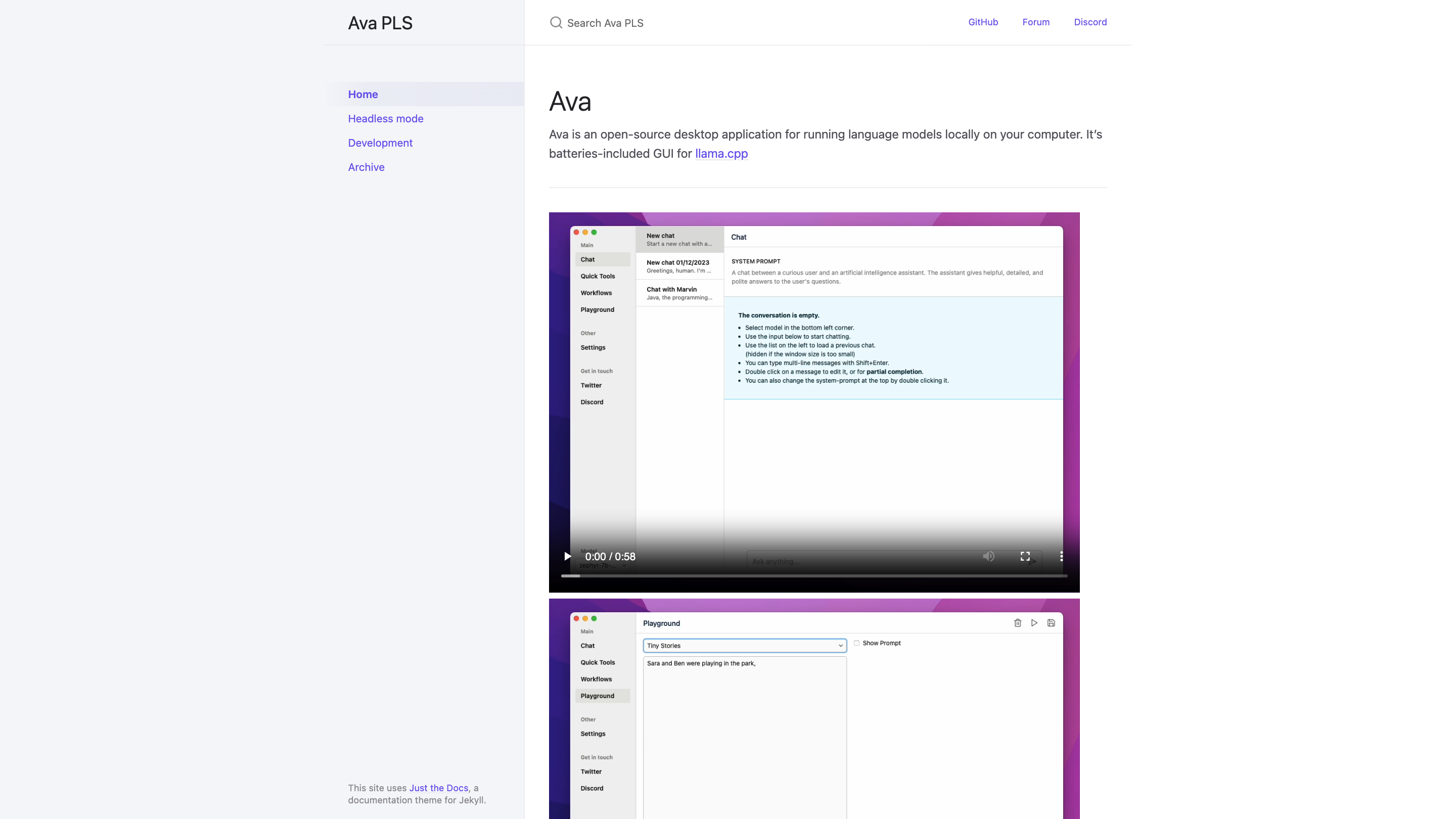Ava PLS
Open siteCoding & Development
Introduction
Local language models for your desktop.
Ava PLS Product Information
Ava is an open-source desktop application for running language models locally on your computer. It provides a batteries-included graphical user interface (GUI) built around llama.cpp, enabling users to run language models offline with a convenient local workflow. The project uses Zig and C++ (llama.cpp), with SQLite for data handling and a modern frontend stack (Preact, Preact Signals, Twind) for a responsive UI. Ava can be downloaded as prebuilt artifacts or built from source, including a headless mode option for non-GUI usage.
How Ava Works
- Local model execution: Run language models directly on your machine without requiring cloud access.
- GUI-based workflow: A user-friendly desktop interface to configure and execute models, manage sessions, and view outputs.
- Build options: Download prebuilt binaries or build from source using Zig; supports standard build commands.
- Headless mode: Use -Dheadless=true to run Ava without the GUI for automation or server-style tasks.
Getting Started
- Download or build Ava. Obtain prebuilt artifacts from GitHub Actions or build locally with Zig.
- Launch Ava. Open the GUI to start configuring models, selecting weights, and issuing prompts.
- Run models locally. Execute inference tasks directly on your computer, with results rendered in the app.
- Optional headless run. Build with -Dheadless=true to operate Ava in headless mode for scripting and automation.
Tech Stack
- Zig programming language
- C++ (llama.cpp) for model execution
- SQLite for data management
- Frontend: Preact, Preact Signals, Twind
Safety and Licensing
- Ava is MIT-licensed and intended for local, offline use of language models. Respect model licenses and data privacy when handling prompts and outputs.
Core Features
- Local execution of language models with a GUI
- Open-source MIT-licensed project
- Built around llama.cpp for efficient on-device inference
- Zig-based build system with support for zig build run and zig build run -Dheadless=true
- Integrated frontend stack (Preact, Preact Signals, Twind) for a responsive UI
- SQLite for lightweight local data management
- Prebuilt artifacts or source builds from GitHub Actions
- Headless mode for automation and scripting
